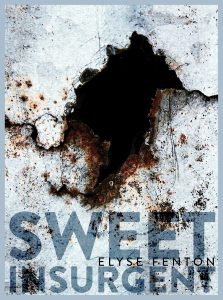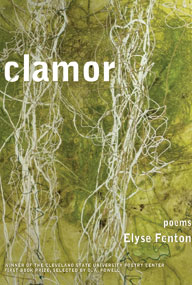Winner of the Poetry Society Of America’s 2013 Alice Fay Di Castagnola Award
Praise for Sweet Insurgent:
“. . . These poems are alive to our historical moment, inspiring us to re-think our place in a constantly shifting political, natural, and ethical world.”
—Kevin Prufer
“. . . Fenton has the rare fortitude and heart and willingness to really absorb and grapple with news from both near and far, and with exacting intelligence and deep knowledge of history and myth. Sweet Insurgent reminds us that the difficult is not impossible. . . .”
—Mary Szybist
“The body, across these poems, is fragile yet dangerous—with its strengths and passions, its seeming willingness to be injured. The body’s perpetual warring against and for a lover, a soldier, a daughter, a heaven, a ‘ferocious world’—all are rendered in images as small and intimate as bone ground to sand along Omaha beach or a migraine pouring ‘its lash of oil into my ear.’ What would the body be without its appetites?”
—Natalie Diaz
Winner of the University of Wales 2010 Dylan Thomas Prize
Winner of the 2009 Cleveland State University Poetry Center First Book Prize, Selected by D.A. Powell
Winner of the 2010 Texas Institute of Letters Bob Bush Memorial Award for First Book of Poetry
Praise for Clamor:
“From the smoldering wreckage of a battle-scarred Iraq to ‘the last unmuzzled throatful of air,’ Elyse Fenton’s debut collection clamors with such exigency that it drops us right into the danger zone. Her art is precise, persistent and volatile . . . .”
—D. A. Powell
“. . . In keeping with the best traditions of war poetry, the underlying subjects of Clamor are love and loss. Clamor is a book that refuses to turn away.”
—Brian Turner
“. . . [T]hese poems are not afraid of meaning or the meaningful. . . . If every poem is indeed a love poem, Clamor is indeed a debut worth reading and about which we must make noise.”
—Jericho Brown
“The astonishing paradox of Elyse Fenton’s Clamor lies in its raw, disturbing subject matter: the Iraq war, the body’s destruction, desolation, and grief, set against an achingly beautiful love poetry. . . . Fenton deftly and unabashedly tells a story of passion and doubt, of the terrible waiting and an otherworldly reunion, what we are capable of doing to and for each other, and what we do to endure.”
—Dorianne Laux


